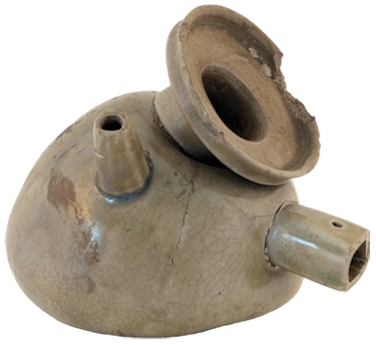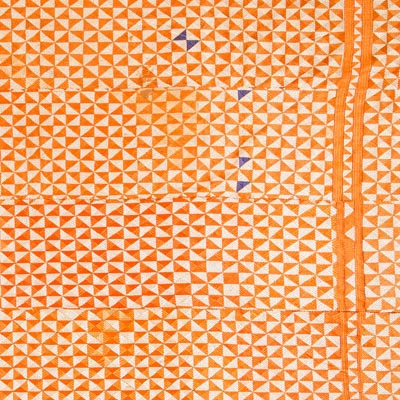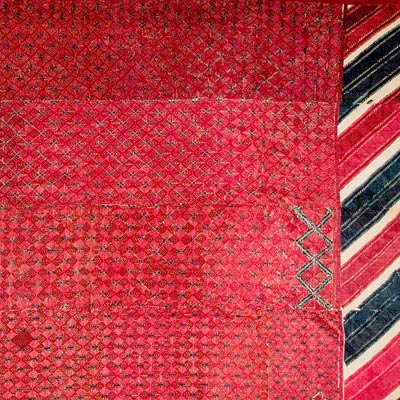Embroidered Biographies
Women in the Punjab region of India and Pakistan embroidered intricate patterns—known as phulkari (flower work) or bagh (garden)—with silk threads onto handwoven cotton cloth, producing brightly colored shawls. Girls were taught this art by female relatives and were considered adults when they could stitch their own phulkari. Although their names are not known to us, the women who produced these textiles were talented artists, who designed and embroidered these shawls without written patterns.
Most phulkari patterns were highly regular. However, women sometimes introduced small color or pattern changes into their work. Some were added to protect the shawl's wearer from the evil eye. Others were stitched to mark important events that occurred during a textile's creation, such as the joy of a baby's birth or grief over a relative's death.
Phulkari were worn during important events in women's lives. Grandmothers began embroidering special phulkari called vari da bagh when their grandsons were young as gifts for their future brides. The most intricate could take up to ten years to complete. At her grandson's wedding, the shawl was wrapped around the bride to welcome her into the continuing story of her new family.




